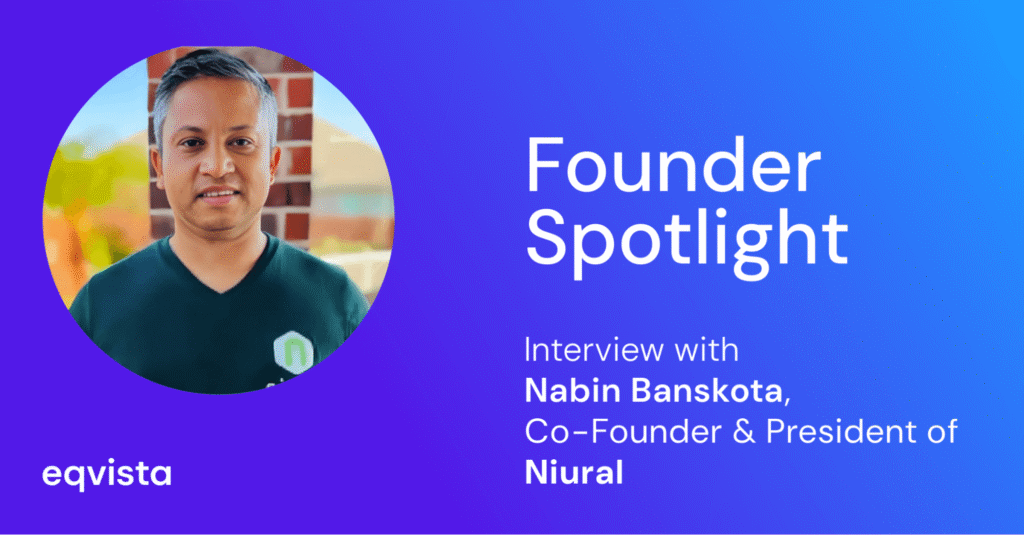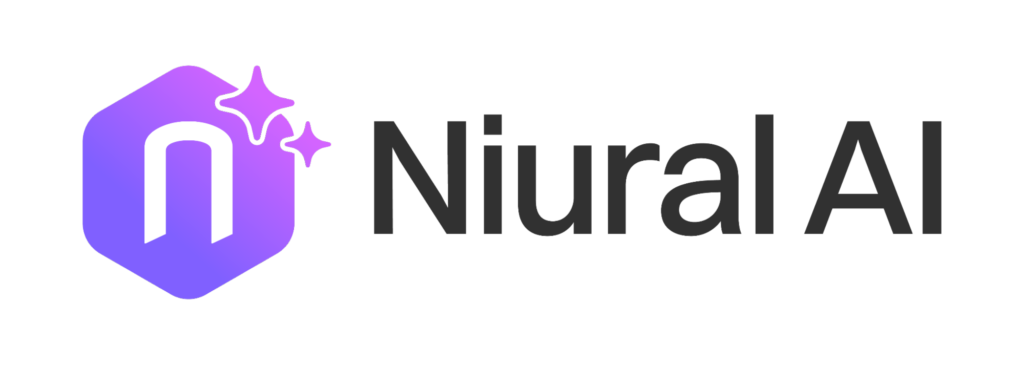Revolutionizing Global Work: How Niural Is Automating Compliance, Payroll, and HR—For Good
When it comes to managing global teams, payroll, and compliance, the rules are changing—and Niural is leading the charge. In our exclusive interview, Nabin Banskota, Co-founder and President of Niural, shares how leaving a high-profile Wall Street role inspired a mission to solve the real, tangled challenges of international HR. With its AI-native platform, Niural isn’t just layering technology onto old models—it’s rebuilding HR and payroll from the ground up, automating everything from risk mitigation to compliance across 150+ countries.
Discover how Niural’s AI SuperAgent, EMMA, and unified system are making compliance frictionless, global payments seamless, and paving the way for a truly borderless workforce.

Nabin, You have over 20 years of leadership experience across industries like financial services, healthcare, food and beverages, including a long tenure as CFO at Citi. What inspired you to transition from traditional finance to founding a modern AI-native HR and payroll platforms like Niural?
Leaving a successful Wall Street career in 2018 was a pivotal and deeply personal decision for me. I had a comfortable, stable role as a CFO, but I felt a growing pull towards solving real-world problems and building something from the ground up. That leap into entrepreneurship wasn’t easy; it came with struggles and uncertainty. But it also became one of the most important decisions of my career. At big institutions like Citi, you have access to everything: legal teams, systems, infrastructure. But when you start a company, you don’t have that luxury. Starting from scratch taught me resilience and forced me to wear multiple hats, something you don’t often do in large institutions with ample resources.
At the same time, the decade I spent at Citi gave me invaluable experience: managing global teams, navigating complex regulatory environments, understanding banking rails, and cross-border operations. All of that has been crucial in building Niural. We’re not just creating a product, we’re thinking generationally, with a 30-year roadmap in mind. Without that blend of corporate discipline and entrepreneurial drive, I wouldn’t have had the confidence or perspective to build something like Niural.
Niural positions itself as the first AI-native global PEO. Could you elaborate on how AI SuperAgents and other AI technologies fundamentally change payroll and compliance processes compared to traditional systems?
Traditional payroll and compliance systems are often rigid, complex, fragmented, and reliant on legacy infrastructure that can’t adapt quickly to fast-changing global labor laws and tax regulations. Every country has its own compliance requirements, and those rules change frequently, making it nearly impossible to scale operations without a massive legal and operational team. At Niural, we approached the problem differently. Drawing from our experience building Harvest, an AI SuperAgent in regulated environments like banking, we knew we had to reimagine the system from the ground up with AI at the core, not layered on top like our competitors.
Instead of just offering AI that suggests what to do, our system enables AI to execute tasks; whether it’s setting up compliant PTO policies, issuing local contracts, or flagging fraud. That level of automation isn’t possible with legacy systems. We built our own proprietary tax engine and redesigned core modules like onboarding, expenses, and payments so that our AI can operate with precision, unlike a generic chatbot.
This executional AI model doesn’t just assist, it performs. It makes your team more productive and eliminates the need for specialized training or third-party consultants. Our AI guides you through it conversationally. That’s the future of SaaS, and we believe Niural is building the infrastructure to power it globally.
What are the key AI-driven efficiencies and accuracy improvements Niural brings that set you apart from legacy payroll providers?
Niural delivers a transformative leap in payroll and compliance by building AI at the execution layer, not just for insights, but for action. Unlike legacy providers that use AI for basic guidance, Niural’s AI-native platform is designed from the ground up to execute transactions autonomously; like running payroll, setting up PTO policies, generating contracts, or onboarding globally.
What truly sets Niural apart is its custom-built infrastructure, including a proprietary global tax engine and compliance modules, enabling precise updates as regulations shift. Instead of relying on third-party tools or fragmented systems, Niural offers an intelligent, unified platform that adapts instantly to local rules.
Legacy providers require users to learn complex systems, often needing costly onboarding and training. Niural replaces that with conversational AI interfaces, enabling users to manage tasks as easily as chatting with a colleague. In short, Niural makes compliance effortless, global payroll accurate, and operations vastly more efficient.

How do you balance the diverse and complex regulatory requirements across 150+ countries under one system?
At Niural, we strike the balance between scale and precision by combining AI-driven automation with human-in-the-loop oversight. Our system is built with inherent compliance logic that accounts for country-specific labor laws, tax codes, and regulatory nuances.
At the same time, we maintain a dedicated compliance team that reviews and validates changes, adding an extra layer of governance to our AI-powered infrastructure. This hybrid model enables us to support 150+ countries with confidence, speed, and precision, all within a unified, intelligent system.
With Niural’s significant presence in Nepal, how do you bridge skill gaps and bring global best practices to your engineering and operations teams locally?
As a global company, we have an R&D hub in Asia (Nepal and India), similar to many other large companies. However, the majority of our sales, marketing, product, engineering, and customer service teams are based in the US and Canada. That said, we believe in global talent, and our product makes it easier to manage a global workforce –not only for us, but for our customers as well.
It’s reported that Niural customers reduce payroll errors by up to 90%, save significant HR costs, and save over 60 hours monthly on administrative work. Can you share specific examples or case studies that illustrate these outcomes in practice?
Niural has helped high-growth companies like Tensor, Spire, Slingshot AI, and Echowin manage global payroll, benefits, payments, and contractor operations in a single AI-powered system, reducing costs and administrative overhead at scale. Customers echo the impact.
David Kuhn, General Counsel at Karate.com, says Niural “became an extension of our team,” handling multi-subsidiary complexity with ease. Spire co-founder Kaito Yanai adds, “Niural’s EOR service was very smooth and critical for attracting and retaining talent globally.”
Read more success stories.
As global HR landscapes grow more fragmented, how do you ensure Niural stays ahead of evolving regulations and minimizes risks for multinational clients? What’s your approach to third-party integrations as regulations or client needs change?
At Niural, we’ve designed our platform with adaptability and consolidation at its core, which is essential as global HR and compliance landscapes become increasingly fragmented. Multinational clients often juggle multiple entities, locations, and regulatory frameworks; so our system offers a single, unified overview across all entities, reducing complexity and exposure to risk.
Crucially, Niural’s system is not rigid. Our architecture is built for customization, meaning clients can start with core capabilities and scale up with integrations as their needs evolve. For example, our accounting integrations can sync by team, by entity, or even by specific regional rules, ensuring regulatory alignment no matter how a company grows or shifts. By offering flexible, real-time configuration and integrations, we help clients stay compliant, avoid costly missteps, and adapt faster than legacy systems ever could. That’s how Niural keeps organizations both agile and future-proof.
Congratulations on raising $31 million in recent Series A funding. What are the strategic priorities for Niural’s growth and technological development over the next few years?
With this funding, we are prioritizing innovation in AI, payments, and benefits, as well as scaling our team across multiple locations. We are proud to be the first HR and payroll company to execute payroll and other key tasks using AI.
What key advice would you give to aspiring fintech entrepreneurs looking to innovate in highly regulated industries like payroll and compliance?
My key advice to aspiring fintech entrepreneurs is this: you must build with intelligence, integration, and adaptability from day one. These sectors are complex for a reason. Every country has unique labor laws, tax rules, and compliance standards that change frequently. Trying to stitch together fragmented, legacy systems won’t cut it. You need a unified platform that gives companies a holistic view of their operations, expenses, revenues, and compliance, so they can make informed decisions in real time. That kind of financial visibility is crucial. Whether it’s day one, day 30, or day 90, you need to know your run rate, how much is going out, and how much is coming in, so you can make smart decisions early.
Invest early in infrastructure that is AI-native, not AI-added. At Niural, we designed our system from the ground up to leverage AI not just for insights, but for execution. That kind of intelligence is what allows businesses to scale globally while staying compliant and focused on strategy, not stuck in operational weeds.
